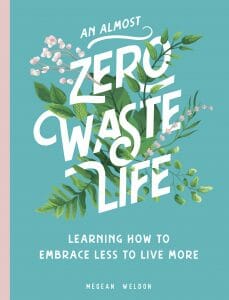Zero Waste Life: Learning How to Embrace Less to Live More

Consider secondhand shopping. Another option is to buy what you need secondhand from a thrift store. Anything you could ever need has already been made and used by someone else who’s looking to get rid of it.
Give DIY a try. Learning to make necessary items is very empowering, and you can use your newly acquired skills to make gifts or teach someone else how to save money.
Buy locally. When all other avenues have been explored, buy new—but try to buy local first. and if you’re wondering whether it’s more environmentally friendly to shop at a local store or purchase something online, think about the travel miles a product has to take to get to you.
Burst:
If one in a hundred American households shopped resale, we could collectively save over $1.6 billion and 1.1 billion pounds of carbon dioxide emissions each year.
Sometimes buying online is the greener option. However, purchase from small, ethical businesses online that are sustainable. If these businesses are continually supported, it’s more likely they’ll be around for a while.
Greenwashing
Keep a keen eye out for greenwashing, which is when false and unsubstantiated claims are made regarding the environmental benefit of a product or service. Many sleazy companies will try to weasel their way into the market to make a quick buck in your desire to make better choices. Because this is happening so much, it’s getting harder to sift through the companies that are truly trying to make a difference versus the ones that are only in it for the money.
companies will try to weasel their way into the market to make a quick buck in your desire to make better choices. Because this is happening so much, it’s getting harder to sift through the companies that are truly trying to make a difference versus the ones that are only in it for the money.
Transparency
Most good companies are completely open about their impact. Check their websites to see if they have listed the ways they’re making change and have highlighted all aspects of their processes. From manufacturing to delivery, companies with good moral compasses will take you on that journey with them. However, other companies that don’t have good moral compasses probably have nothing to report, considering they might not be as ethical as they’d like you to believe.
Disposability
Any products claiming to be green but are still disposable would fall into my definition of greenwashing. As a consumer, you must be smart about the real implications of the products you buy.
CLOTHING
Clothing and textiles account for a massive amount of global waste. And fast fashion is horrid. Trends and clothing lines change every few weeks, pushing stores to constantly change out their inventories. This means that millions of pounds of clothing go completely unused (stores purposefully destroy clothing so that people can’t get it out of dumpsters).
Ministry Earth is a collective Awareness-Raising, Perception-Building Initiative from Humanity Healing International, Cathedral of the Soul Educational outreaches created to introduce the perspective of Ethical Consciousness and Nonhuman Personhood to its Animal & Eco Ministries. Ministry Earth is a Service-Oriented Initiative and its Magazine is a Copyrighted Publication of OMTimes Media, Inc. Broadcasting and Publishing House.






